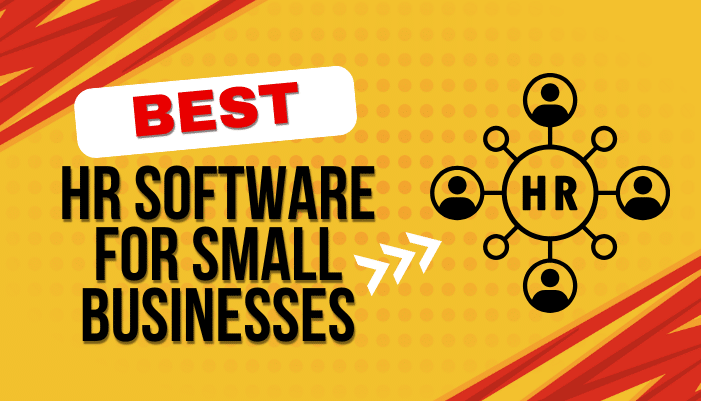Running a small business means wearing many hats, and HR tasks are often a big part of the day. The right HR software can make these tasks easier.
Small businesses thrive on efficiency and effectiveness, and the selection of HR software plays a critical role in ensuring both. Good HR software streamlines processes, from payroll to performance reviews, leaving you more time to focus on growth and strategy.
Choosing the best HR software for your small business can be daunting. There are countless options, each with its own set of features and pricing. Yet, the right solution can transform your business operations. You need a tool that fits your budget, simplifies your daily HR tasks, and scales with your company. This guide will dive into the world of HR software designed for small businesses. We will explore what makes certain software stand out and how it caters to the unique needs of smaller teams. Let’s find the perfect match to help your business run smoothly and keep your employees happy and productive.

Credit: icomppayroll.com
Contents
Top Features To Consider
Choosing the right HR software is crucial for small businesses looking to streamline their HR processes. The perfect solution should not only fit your current needs but also grow with your company. To help you make an informed decision, let’s explore the top features to consider in small business HR solutions.
User-friendly Interface
First impressions matter, and the same goes for software. A user-friendly interface in employee management software is vital. It means less time spent on training and more on productivity. Let’s delve into what makes an interface user-friendly:
- Intuitive navigation: Users should find what they need without a manual.
- Clear labels: Every section and button should be self-explanatory.
- Consistent layout: Similar functions should be grouped.

Imagine the ease of a dashboard where you can see everything at a glance. Your payroll software for small businesses should make complex tasks simple. Here’s an example of how a well-designed interface can look:
| Feature | Description |
|---|---|
| Dashboard | One-click access to all major functions |
| Reporting | Easy-to-understand graphs and charts |
| Employee Profiles | Quick view of personal and employment details |
Integration Capabilities
Integration is key in HR automation solutions. A seamless flow of data across platforms is a game-changer. Consider these points:
- Software compatibility: Your HR management tools should work well with other systems.
- Data synchronization: Real-time updates across platforms prevent errors.
- API access: This allows for custom connections with other software.
Imagine the power of connecting your performance management tools with workforce management software. It’s about creating a cohesive ecosystem. For instance, integration can look like this:
| System | Integration Benefit |
|---|---|
| Accounting Software | Automatic payroll updates |
| Recruitment Platforms | Streamlined candidate tracking |
| Time Tracking Tools | Effortless attendance management |
Mobile Access
In today’s world, mobile access to cloud-based HR systems is not a luxury; it’s a necessity. Employees expect to connect anytime, anywhere. Here’s why mobile access is essential:
- On-the-go management: Access HR tools while away from the desk.
- Instant updates: Receive real-time notifications on your device.
- Employee self-service portals: Allow staff to manage their profiles.
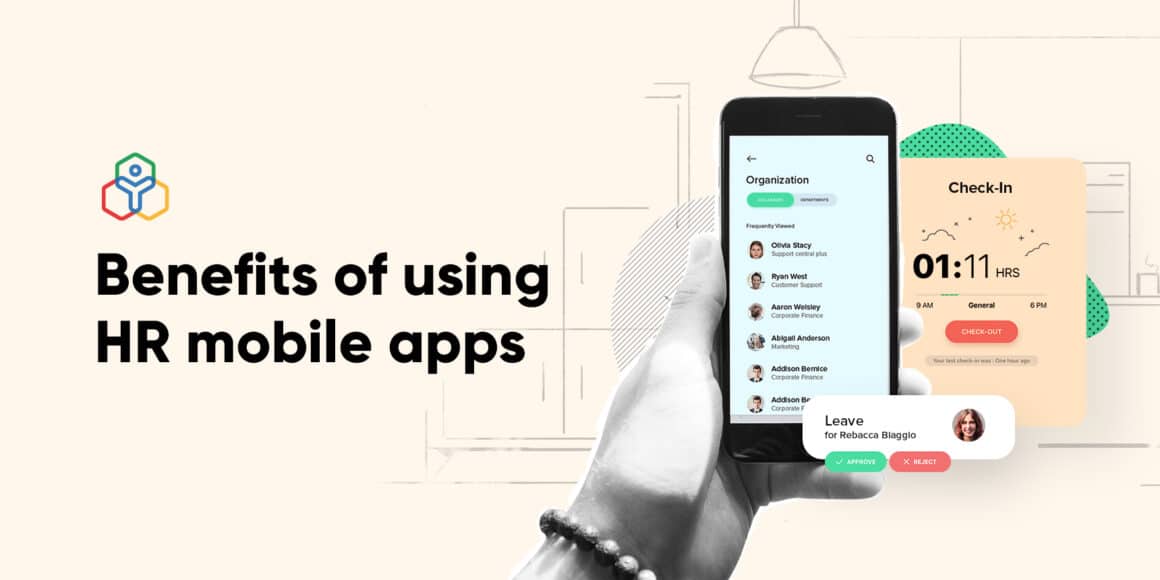
Credit: www.zoho.com
Mobile apps for recruitment software for small businesses can enable quick responses to applicants. This leads to better candidate experiences. Check out these mobile features:
| Function | Mobile Benefit |
|---|---|
| Leave Requests | Submit and approve leave from anywhere |
| Expense Claims | Scan receipts and file claims on the spot |
| Performance Reviews | Give and receive feedback instantly |
Cost-effective Solutions
When it comes to Human Resource Management, small businesses often face the challenge of finding the right balance between functionality and affordability. Cost-effective solutions are crucial for startups and SMEs to optimize their HR processes without breaking the bank. With a slew of HR Management Software options available, it’s essential to understand the difference between free and paid services, the variety of subscription models, and the potential hidden fees that can sneak up on your budget.
Free Vs Paid Options
Small businesses must weigh the pros and cons of free and paid HR software. Here are key points to consider:
- Free Software often offers basic features such as employee database management and absence tracking, suitable for tiny teams.
- Paid Software usually provides more advanced features like Payroll Software For Small Businesses, Recruitment Software For Small Businesses, and HR Automation For Startups.
While free options may be tempting, they may lack crucial Employee Management Tools as your business grows. Paid HR Solutions often include customer support, security, and scalability.
| Feature | Free | Paid |
|---|---|---|
| Employee Database | Yes | Yes |
| Payroll Integration | No | Yes |
| Customer Support | Limited | Extended |
Remember, free options may suffice initially but consider Best HR Systems For SMEs for long-term success.
Subscription Models
Subscription Models vary widely among Cloud-Based HR Software. It’s essential to understand the terms:
- Monthly Subscriptions: Offer flexibility with higher monthly costs.
- Annual Subscriptions: Require upfront payment but usually come with a discount.
Choose a plan that aligns with your budget and HR needs. Some HR Management Software providers offer tiered pricing, so you only pay for the features you use. This can include:
- Basic employee tracking
- Complete HR suite with HR Automation For Startups
- Add-ons for Recruitment Software For Small Businesses
Assess the total cost against the value it brings to your Small Business HR Solutions.
Hidden Fees
Beware of hidden fees in HR Management Software. Common areas where extra charges may apply include:
- Implementation and onboarding
- Training sessions
- Additional user access
Read the fine print and ask providers about all potential costs. This ensures your Cost-Effective HR Tools remain budget-friendly. Get a complete breakdown of fees before committing to a service. Transparency is key to avoiding surprises and maintaining a healthy relationship with your HR Software provider.
Investing in the right Employee Management Tools can save time and money in the long run, making it a smart move for your business’s growth and efficiency.
Popular HR Software Options
Choosing the right HR software is crucial for small businesses. It simplifies tasks, from payroll to performance reviews. Here, we explore popular HR software options. Each offers unique features to meet different needs. Let’s dive into details about Gusto, BambooHR, and Zoho People.
Gusto
Gusto is a favorite among small businesses for its user-friendly interface and comprehensive features. It’s not just payroll software for small businesses; it’s a complete HR platform. Here’s why Gusto stands out:
- Payroll management: Automates tax calculations and payments, ensuring accuracy.
- Benefits administration: Easy setup and management of health insurance and retirement plans.
- Onboarding solutions: Streamlines new hire processes, from offer letters to task assignments.
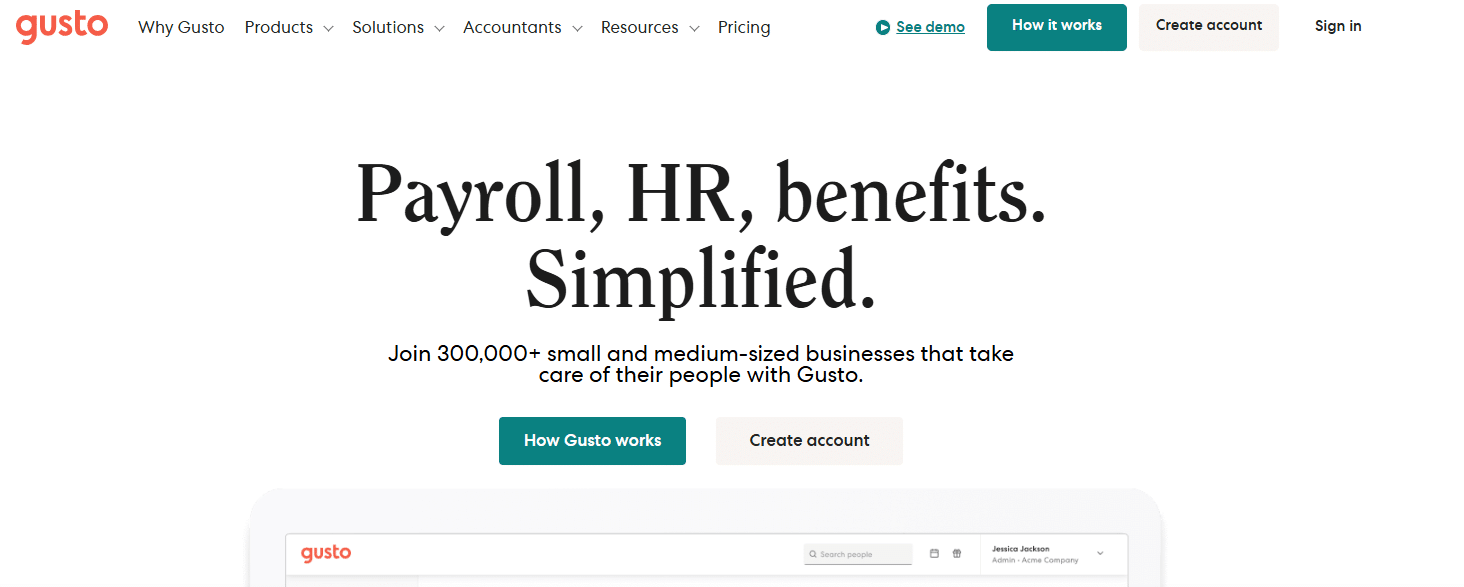
With Gusto, businesses can also access HR analytics tools. These insights help in making informed decisions. Additionally, it offers employee self-service portals. This feature empowers employees to update personal information and access pay stubs independently.
BambooHR
BambooHR is renowned for its HR management software, tailored for small to medium-sized businesses. It excels in areas like:
- Employee data management: Centralizes employee information for easy access and updates.
- Performance management systems: Facilitates regular feedback and performance tracking.
- Recruitment software: Streamlines the hiring process from job posting to onboarding.
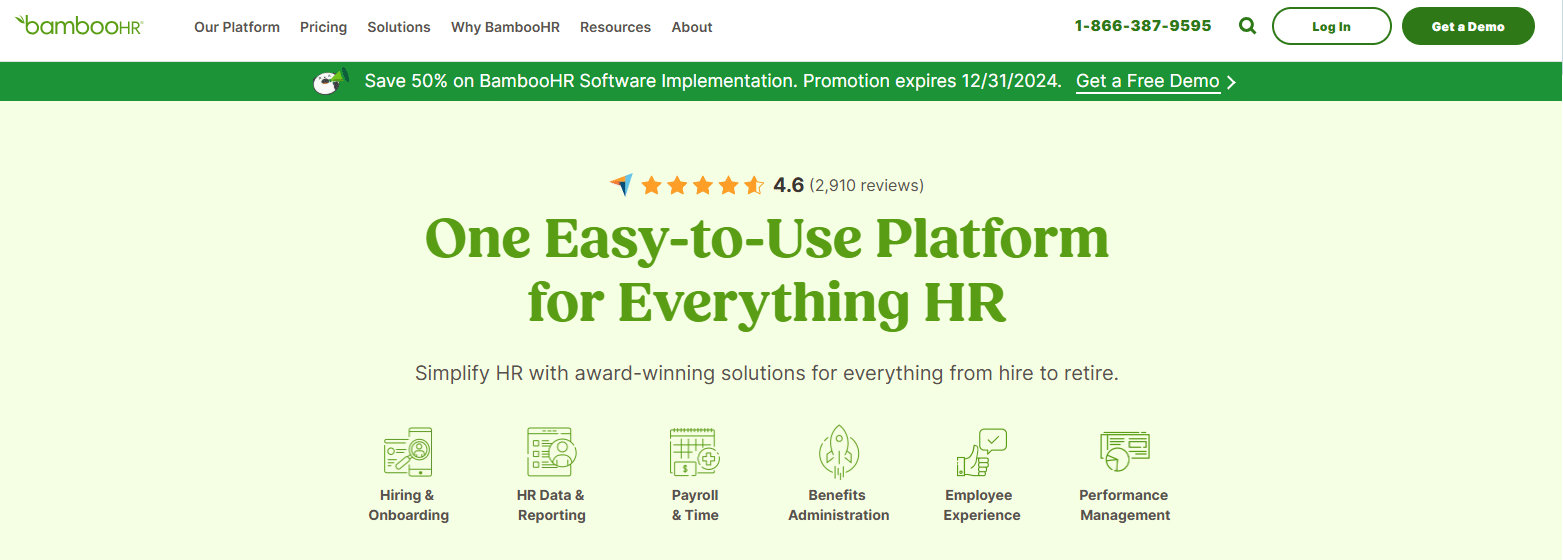
This cloud-based HR software also includes time-off tracking and reporting capabilities. BambooHR’s focus on user experience makes it a top choice for businesses seeking comprehensive, easy-to-use HR solutions.
Zoho People
Zoho People is a versatile HR platform designed for the modern workforce. It offers a wide range of features:
- Employee management tools: Organizes employee records and schedules in one place.
- Self-service portal: Allows employees to request time off and update personal details.
- Cloud-based HR software: Ensures secure, remote access to HR functions.
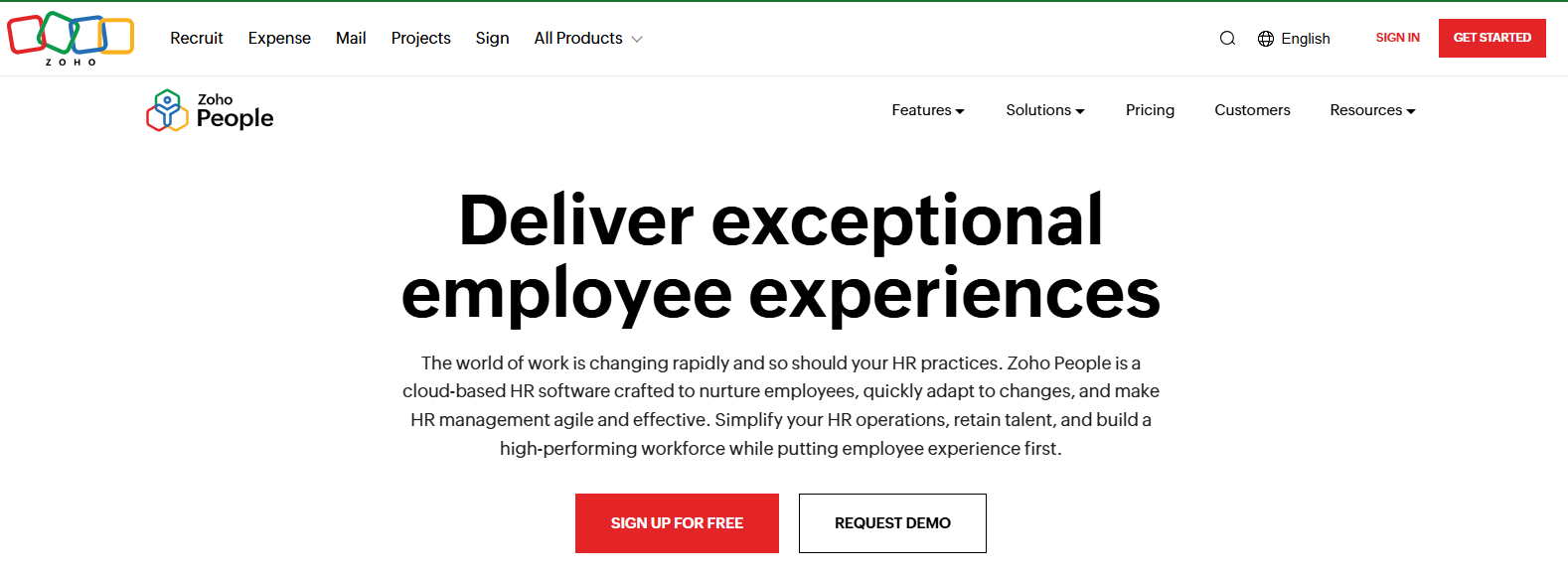
Zoho People also integrates with other Zoho applications. This integration supports a seamless workflow across different business functions. With its affordable pricing and scalability, Zoho People is an excellent choice for small businesses looking for flexible HR solutions.
Benefits For Small Businesses
Choosing the Best HR Software for Small Businesses is critical in streamlining operations and enhancing efficiency. These Small Business HR Solutions simplify processes and offer a range of benefits that can transform how a small business functions. From automating routine tasks to fostering a more engaged workforce, the advantages are clear and impactful.
Time Savings
Small businesses are often pressed for time. Implementing Employee Management Software can lead to significant time savings. Here’s how:
- Payroll Automation reduces the hours spent on calculating and processing employee pay.
- With Employee Self-Service Portals, staff can manage their data, saving HR from manual updates.
- Performance Management Tools streamline appraisals, saving time on reviews and feedback sessions.
Moreover, cloud-based HR systems give access to information anytime and anywhere, a boon for time-strapped business owners. This table illustrates the average hours saved per week after implementing HR software:
| Task | Hours Before | Hours After |
|---|---|---|
| Payroll | 8 | 2 |
| Employee Data Management | 5 | 1 |
| Performance Reviews | 4 | 1 |
Improved Compliance
Staying compliant is a non-negotiable aspect of running a business. Compliance Tracking Systems and HR Management Tools can help in:
- Maintaining accurate records as per legal requirements.
- Keeping track of necessary employee training and certifications.
- Generating reports for audits without a hassle.
This proactive approach to compliance can prevent costly fines and legal issues. Small businesses benefit from peace of mind, knowing their operations are within legal boundaries. The following points highlight the compliance-related benefits:
- Automated Reminders: Never miss a filing deadline or certification renewal.
- Regulation Updates: Stay informed on the latest changes in labor laws.
- Document Control: Secure and organized storage of all compliance-related documents.
Enhanced Employee Engagement
Engaged employees are the backbone of any thriving business. HR software for small businesses is vital to boosting morale and productivity. Here’s what these systems offer:
- Transparent Performance Management Tools that clarify expectations and recognize achievements.
- Opportunities for self-improvement through online training modules.
- Efficient Recruitment Software for Small Businesses that brings talent aligned with company culture.
Small businesses can use Workforce Management Software to foster a positive work environment that encourages growth and satisfaction. Consider these engagement statistics:
| Aspect | Before HR Software | After HR Software |
|---|---|---|
| Employee Satisfaction | 65% | 85% |
| Turnover Rate | 20% | 10% |
| Training Participation | 50% | 75% |
User Reviews And Ratings
Choosing the best HR software for small businesses is crucial for streamlining HR tasks and improving workforce management. User reviews and ratings play a significant role in this decision-making process. They offer real-world insights into how HR solutions perform in practical settings. Such feedback can help you assess if the software fits your business needs. Let’s investigate what users and industry experts say about the top HR software tools.
Customer Feedback
When selecting small business HR solutions, customer feedback is invaluable. It provides a glimpse into the user experience and software efficiency. Here’s what to consider:
- Recruitment Software for Startups: Users often highlight ease of use and the ability to streamline the hiring process.
- Payroll Software for Small Businesses: Feedback commonly praises the accuracy and time-saving features.
- Benefits Administration Software: Business owners appreciate software that simplifies managing employee benefits.
Users note that the best HR management software often includes:
| Feature | User Satisfaction |
|---|---|
| Employee Onboarding Solutions | High |
| Cloud-Based HR Systems | High |
| Employee Management Tools | Varies |
| Performance Tracking Software | Moderate to High |
HR software reviews emphasize support and updates as key factors for continuous satisfaction.
Industry Ratings
Industry ratings help gauge a product’s market standing. They reflect expert analysis and comparative studies. Performance tracking software and HR management software often get rated on:
- Functionality
- User interface
- Customer support
- Integration with other tools
Noted industry authorities like G2 and Capterra provide ratings based on user feedback and expert insights. They help small businesses find the best fit among the myriad options available. For instance, cloud-based HR systems often receive high scores for accessibility and security.
Industry ratings for HR solutions for small businesses include:
- Ease of implementation
- ROI
- User adoption rate
These ratings are critical for making informed decisions.
Case Studies
Case studies offer detailed accounts of HR software implementation. They include challenges faced and the outcomes achieved. Here’s what they reveal:
- Recruitment Software for Startups: Case studies show improved hiring efficiency and better candidate fit.
- Payroll Software for Small Businesses: They detail cost savings and reduce errors in payroll processing.
- Benefits Administration Software: Businesses notice streamlined benefits management and enhanced employee satisfaction.
Case studies on employee onboarding solutions often highlight:
- Faster integration of new hires into company culture
- Reduced paperwork and administrative burden
These real-life examples solidify the importance of choosing the right HR software for your business.
Implementation Process
Finding the right HR software for small businesses can be a game-changer. It can streamline operations, from recruitment to payroll. The implementation process is key to success. It involves setting up the software, moving data, and training staff. Let’s dive into each step to ensure a smooth transition.
Onboarding Steps
Onboarding is the first step after choosing your HR software. It sets the foundation for using the tool. A well-planned onboarding process can make a big difference. Here’s how to get started:
- Setup: Begin with setting up basic company details in the software. This includes company names, employee roles, and department structures.
- Customization: Tailor the software to meet your specific needs. This might involve adjusting settings for Payroll Management Systems or Performance Tracking Software.
- Integration: Integrate other tools your business uses. This ensures smooth data flow between systems.
Remember, good Employee Onboarding Software should simplify this process. It makes adding new hires easy, helping them get started with training and accessing essential documents.
Data Migration
Moving data to your new HR software is a critical step. It involves transferring employee records and other important info. Here’s how to manage this process:
- Prepare Data: Organize your current data. Make sure it’s accurate and up-to-date.
- Choose What to Migrate: Decide which data you need to transfer. This often includes employee profiles, pay history and benefits information.
- Use Data Transfer Services: Many cloud-based HR systems help with data migration. They can guide you through the process.
Successful data migration ensures that all your important information is in the new system, making it easier to manage Small Business HR Solutions.
Training Support
Training is crucial for getting your team up with the new software. The proper support can make learning easy and effective. Here’s how to approach training:
- Access Training Resources: Use the resources provided by your HR software. This often includes tutorials, webinars, and manuals.
- Hands-On Practice: Encourage your team to use the software. Practice helps them learn faster.
- Provide Ongoing Support: Offer help as your team learns. Having someone to answer questions can boost confidence and skill.
Training and Support Resources are vital. They help your team use HR Management Tools effectively, including Recruitment Software for Startups and Employee Self-Service Portals.
Common Challenges
Choosing the best HR software for small businesses can streamline operations, but there are common challenges. Understanding these hurdles is key to the successful implementation and long-term use of any HR solution. Let’s explore small businesses’ obstacles and how they can navigate them effectively.
Resistance To Change
Small businesses often resist introducing new systems, such as Employee Management Software or Cloud-Based HR Systems. Employees might be used to manual processes and view the new HR Software Features skeptically. To overcome this, consider:
- Providing comprehensive training to familiarize staff with the new system
- Highlighting benefits like time savings and error reduction
- Engaging employees early in the decision-making process
It’s crucial to address concerns promptly and show how HR Automation Tools will make their jobs easier, not harder. Open communication and training can turn resistance into acceptance.
Data Security Concerns
With sensitive employee data, Data Security Concerns are valid when adopting HR Management Tools. To protect data, ensure the chosen software has:
| Feature | Benefit |
|---|---|
| Encryption | Keeps data safe during transfer and storage |
| Access controls | Limits on who can view or edit sensitive information |
| Regular updates | Protects against new threats |
Choose a provider known for robust security measures to ensure peace of mind. Prioritize HR Software for Small Businesses that are transparent about their security protocols.
Budget Constraints
Budgets are often tight in small businesses, making Budget Constraints a key challenge when selecting Payroll Software for Small Businesses or Recruitment Software for Small Businesses. Here’s how to get the best value:
- Analyze your specific HR needs to avoid paying for unnecessary features.
- Look for scalable options that grow with your business.
- Consider the ROI from improved efficiency and compliance.
A cost-effective approach involves choosing Workforce Management Solutions that offer essential features within your budget while providing room for growth.
Future Trends In HR Software
Small businesses need HR solutions tailored to their unique needs. With the right tools, they can streamline operations, enhance employee engagement, and stay competitive. As we look to the future, HR software is rapidly evolving. It’s not just about storing data anymore. It’s about actionable insights, efficiency, and adapting to the changing work landscape. Let’s dive into the exciting trends shaping the future of HR software for small businesses.
Ai And Automation
Artificial Intelligence (AI) and automation transform how small businesses manage their workforce. These technologies offer powerful employee management software solutions, making tasks quicker and more accurate. Consider these key developments:
- Recruitment processes are streamlined with recruitment automation, from screening candidates to scheduling interviews.
- Payroll processing software becomes more efficient, reducing errors and saving time on routine tasks.
- Performance reviews turn data-driven with performance management systems, offering real-time feedback and goal tracking.
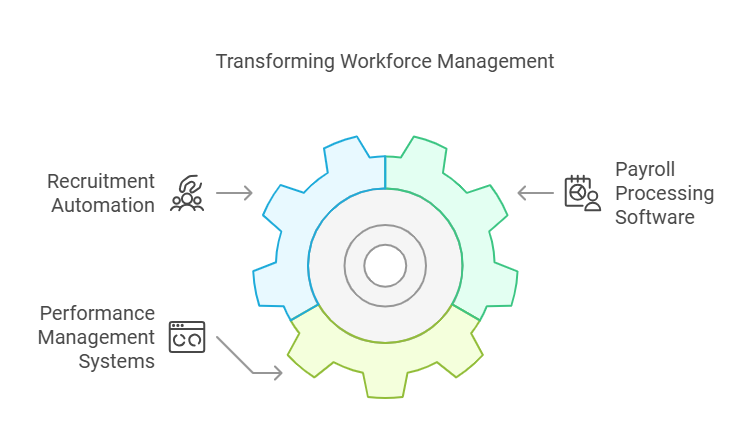
Furthermore, AI helps predict employee turnover, identify training needs, and provide personalized employee experiences. Here’s a glance at how AI is integrated into HR tasks:
| HR Task | AI Contribution |
|---|---|
| Recruitment | Automated resume screening and candidate ranking |
| Onboarding | Personalized onboarding experiences with employee onboarding solutions |
| Performance Analysis | Advanced analytics for performance assessment |
Remote Work Features
The surge in remote work demands HR software with specific features to support a distributed team. Small businesses require tools that foster communication and collaboration regardless of location. Key features include:
- Time tracking integrations for managing remote work hours.
- Virtual meeting tools embedded within HR management tools.
- Cloud-based document sharing for real-time collaboration.
Cloud-based HR software is crucial for remote work setups, as it allows employees to access HR services from anywhere. This ensures the continuity of HR functions and keeps teams connected. Secure cloud storage and mobile-friendly interfaces are also vital, ensuring staff can engage with HR systems using their devices.
Employee Self-service
Employee self-service portals are becoming a staple in small business HR solutions. These platforms empower employees to take charge of their HR-related tasks. Benefits include:
- Easy access to pay stubs and tax documents.
- Self-managed leave requests and time-off tracking.
- Personal data updates without HR assistance.
Self-service options reduce the administrative burden on HR staff, freeing them to focus on strategic initiatives. They also improve data accuracy and employee satisfaction. Incorporating employee engagement tools into these portals can further enhance the employee experience by providing a space for feedback and recognition.
Workforce analytics derived from self-service activities offer valuable insights. Small businesses can identify patterns, measure engagement levels, and fine-tune their HR strategies.
Frequently Asked Questions
What Is Hr Software For Small Businesses?
HR software for small businesses is designed to automate and streamline human resource tasks, including employee onboarding, payroll processing, benefits management, and performance evaluations. It’s tailored to fit smaller enterprises’ unique needs and budget constraints.
How Does Hr Software Benefit Small Companies?
HR software benefits small companies by saving time, reducing errors, and improving organizational efficiency. It allows for easy management of employee data and simplifies compliance with labor laws, leading to more effective human resource management within a small business setting.
What Features Are Essential In Small Business Hr Software?
Essential features in small business HR software include employee self-service, payroll integration, time and attendance tracking, and performance management. These core functions help small businesses manage their workforce more effectively without requiring extensive HR departments.
Can Hr Software Improve Employee Engagement?
Yes, HR software can improve employee engagement by facilitating better communication, providing employee self-service options, and streamlining feedback processes. It also helps recognize and track employee achievements, which can boost morale and engagement.
Conclusion
Choosing the right HR software is crucial for small businesses. It streamlines tasks, saving time and money. Before deciding, consider features, scalability, and cost. Each option has unique strengths to support your company’s needs. Remember, good HR software simplifies processes and helps manage your team effectively.
It’s an investment in your business’s future. Take the step today and equip your small business with the tools for success. Your team deserves the best support. Let the right HR software be the backbone of your operations. Ready to choose?
Your perfect HR solution awaits.
No related posts.

